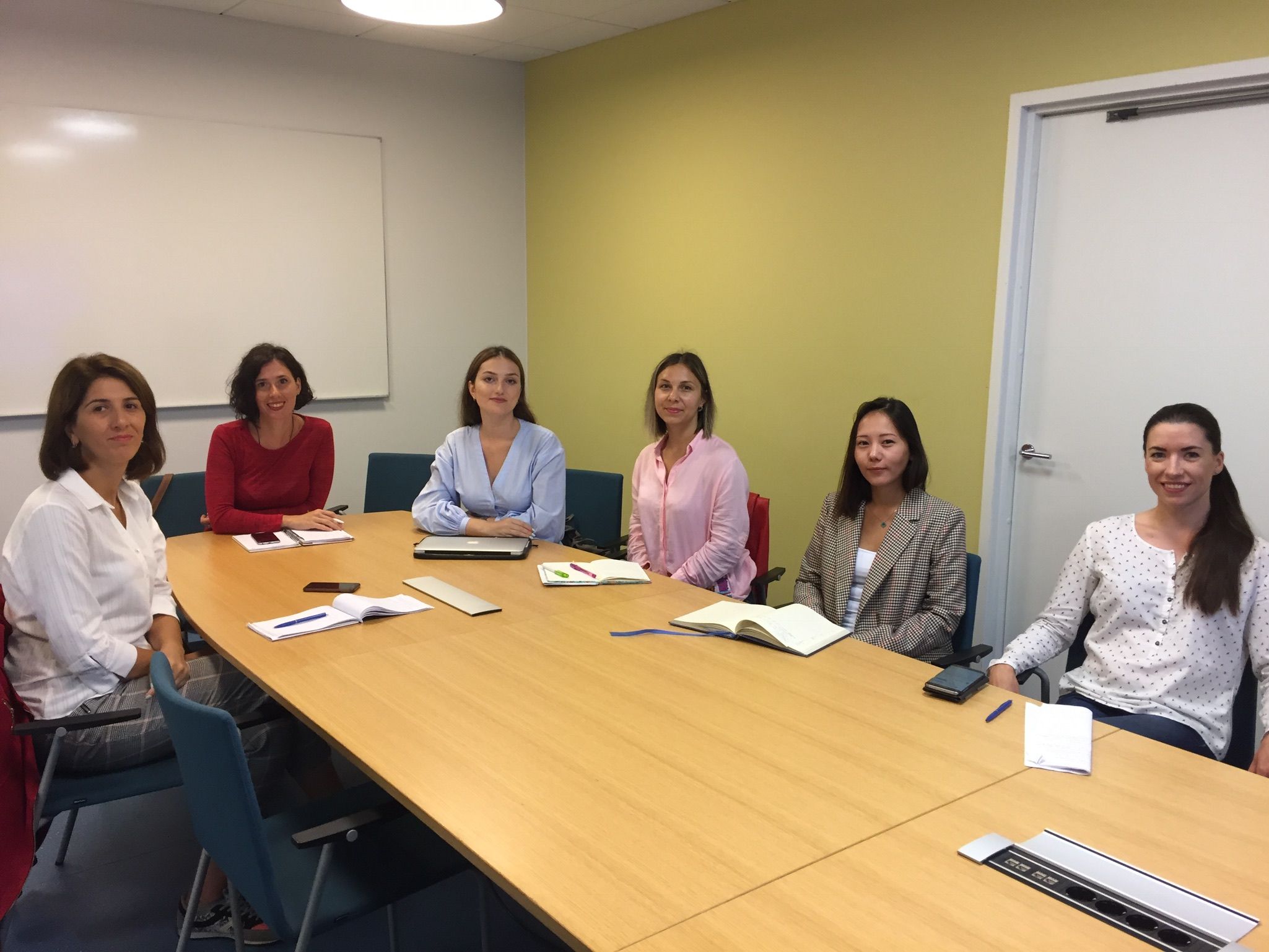The first Finnish International School, designed by Polar Partners and it’s partner network, was opened in Georgia in September 2019. Teachers play a key role in the new school. They have now nearly completed their long training and are excited to use all they have learnt in the classroom.
Finding the Right People
In Polar Partners’ school design process, the important role of a teacher is acknowledged very well. That is why the process of choosing the teachers for the Finnish-Georgian school took some time. As the teachers are mainly responsible for the well-being and learning of the students, the individuals chosen for the job had to meet certain criteria. To ensure that the best candidates were chosen for the long teacher training period, the applicants had to go through a multilayered application process. In the end six enthusiastic, qualified teachers were ready to start their extensive training.
I had the chance to interview three of the teachers during their visit to Finland in August 2019, just before the opening of the Finnish International School -Georgia. With Sophie Cheishvili, Nano Khetsuriani and Nadiia Dudareva we talked about the training process they had completed and their views on education. Their backgrounds and previous teaching experience varied, but they were all equally passionate about teaching young students with the new approach they had learnt during the training.
Diverse Training Methods
The training for the Georgian teachers started already in February and the third module ended in August. The whole training period lasts for 10 months and could roughly be divided to four phases: onsite in Georgia, online, onsite in Finland and onsite in Georgia after the school has started. All three of the teachers described the process to be well planned and implemented with care. They praised the trainers from Koulu Group, University of Turku, PedaNow and ALO Finland to be professional, friendly and very caring.
Onsite training in Georgia was the first phase, where trainers from Finland held sessions face-to-face, setting a base for future training and building up the team spirit among the teachers. After the onsite phase the teachers participated in online training for several months. During this period the they dived deeper into specific subjects and made lot of self-reflection. According to the teachers, online sessions were very flexible. This was great, as most of them still worked in other jobs at the same time.
In the third phase the teachers traveled to Turku, Finland, for a couple of weeks. The purpose of this was to experience the Finnish education system on the ground level and use the theories in practice. Training during this phase was more practical and included visits to local schools. Not only did the teachers observe lessons and classroom activity but they also had the change to plan and execute lessons with the Finnish students.
In the fourth training module the teachers will be teaching in their own classrooms in Georgia, with a continuous support from Finnish experts.
Why the Extensive Training?
You might now be wondering why the teachers had to receive so many months of training, with several training locations, if they already were qualified teachers with several years of teaching experience? The question can’t be answered in one sentence so let’s list some of the reasons.
The teachers are going to be working at a school where the curriculum is based on the Finnish National Core Curriculum and localised to fit the realities of Georgia. This is why even with the previous teaching experience, the teachers needed to get familiar with the ideology behind the curriculum and varying teaching and assessment methods they would be using.
One of the biggest benefits of the long-term training is the opportunity to have enough time for both personal and professional development. The teachers felt that especially during the online training period there was a lot of time for self-reflection. This helped them to learn and do better as they knew what they already handled well, and which areas they needed more work.
As for the training period in Finland, the interviewees considered it important to have the opportunity of experiencing similar learning environments as those they will be working in in the future – and not only the physical environment but also the actions and activities happening in the classroom. Observing the interactions between a teacher and a student and the use of learning materials inspired the teachers to use same methods in their own lessons. The opportunity to ask questions from the Finnish teachers and receiving answers right away was also important.
As a conclusion, the teachers told me that after the hard but rewarding work, they have learned to be more relaxed teachers, who know how to build mutual trust with the children and treat them as responsible individuals. They are also excited to be working with their marvelous team of teachers in a school with mindset towards future!
Written by Polar Partners’ marketing intern: Juliaana Kärkkäinen
